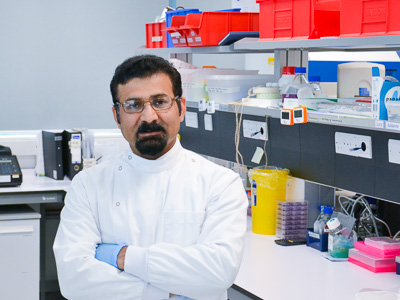Do you see the future being a better place because of some of his work?
I do! We take it for granted now, and students will use it regularly in the labs, but the big development for me was actually PCR (Polymerase Chain Reaction) DNA sequencing. The development of this basic ability to generate a specific piece of DNA once you knew something about the sequence, opened up my field. It was more revolutionary than CRISPR CAS-9. PCR opened up our understanding of how things work on a molecular level.
So one of the proteins that we've expressed in the lab, and purify is a protein called Alpha-synuclein which is implicated in Parkinson's disease. We can purify that protein and we can look at how it behaves in a test tube to then extrapolate how it behaves in human brains when things go wrong. And then that allows you to think about ways that you could block the things that go wrong in humans brains. Our research on things like this is always looking at improvements to health.
Cast your mind into the future. What would the next amazing breakthrough look like for you?
There are a lot of seemingly very different diseases that have proteins that misbehave in the same way. Examples of that are Alzheimer's disease, Parkinson's disease, motor neurone disease, and some of the circulatory disorders as well. And they are all a result of proteins that don't fold properly. And I think for me, in terms of a biomedical approach would be something that allows us to manipulate these proteins so that they don't misbehave, and misfold and disaggregate. How can we block these proteins from sticking together? Getting to grips with these diseases would be amazing, and we have PhD students working towards that now.
What makes you most proud of our graduates?
My pathway here in Lancaster has taken more of a teaching focus, and the thing that I am most proud of is the number of our graduates working in the NHS in the pathology labs. I can go into any path lab in the northwest and further afield, and I can see our graduates.
And what I would also say is that from the maths and the science and the written skills that are developed throughout these Bioscience degrees, our students are incredibly well-prepared to take their skills into any number of fields.



